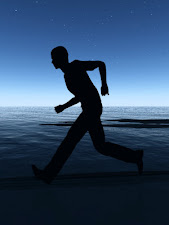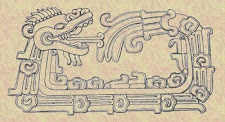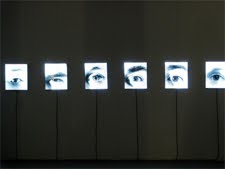River Vagrants in the Age of Wal-Mart (from Harper's)
As if to augur my own psychological dissolution, the raft itself was falling apart. The heavy oak transom to which the 200-pound engine had been bolted was pulling out from the raft’s wooden frame. A little more torque from the engine and it would rip itself right off, sinking to the bottom of the channel like an anvil. Thrown up against the shore by wakes, we tied up to a tree outside the town of Hastings, Minnesota, where Matt told us we would need to stay for several days to fix the broken frame. He ordered me to find a Wal-Mart and return with a little electric trolling motor, which could help steer the drifting raft or pull it out of the way of a tow. I walked up through Hastings, down the main street of curio shops and antiques stores, past the end of the town sidewalks, and out along the highway.
As if to augur my own psychological dissolution, the raft itself was falling apart. The heavy oak transom to which the 200-pound engine had been bolted was pulling out from the raft’s wooden frame. A little more torque from the engine and it would rip itself right off, sinking to the bottom of the channel like an anvil. Thrown up against the shore by wakes, we tied up to a tree outside the town of Hastings, Minnesota, where Matt told us we would need to stay for several days to fix the broken frame. He ordered me to find a Wal-Mart and return with a little electric trolling motor, which could help steer the drifting raft or pull it out of the way of a tow. I walked up through Hastings, down the main street of curio shops and antiques stores, past the end of the town sidewalks, and out along the highway.
One can bemoan the death of the American downtown at the hands of exurban big-box stores, but to truly understand the phenomenon, try reaching one without a car. It was a triple-digit day, the heat shimmering up from the softened blacktop, the breeze hot as a hair dryer. I tried to hitchhike, sticking my thumb out as I stumbled backward down the road. Cars flew by, their drivers craning to look or studiously avoiding eye contact. I wasn’t a very appealing passenger: I hadn’t showered or shaved in the week since we’d left Minneapolis, and had worn the same clothes throughout. I had a permanent “dirt tan,” a thick layer of grime that no amount of swimming in the river could fully remove. My black T-shirt had been torn by brambles and faded by the sun, and a camouflage trucker’s hat covered my matted hair as I trudged for miles along the grassy shoulder. Shame eroded; I didn’t mind if I was seen peering into dumpsters behind convenience stores, looking for cardboard to make a hitchhiking sign. But still no one stopped.
After walking for almost an hour, I reached the edge of a wide sea of blacktop, and walked across to the vast shed of a building that wavered on its edge like a mirage. Enormous doors slid open, and arctic air engulfed me, pulling me into the glorious air-conditioned acreage of the largest Wal-Mart I had ever seen. I pushed a cart through the aisles, picking out a trolling motor and a deep-cycle marine battery to run it. No one paid me much mind, not the too-young couples arguing in Housewares, not the carbuncular stock boys tallying inventory on the vast shelves. As I rolled up to the counter, the checkout girl offered some scripted pleasantries, asked if I had a club card. She rang up the trolling motor, a large oblong box sticking out of the cart, but didn’t notice the $70 battery lying under it.
After walking for almost an hour, I reached the edge of a wide sea of blacktop, and walked across to the vast shed of a building that wavered on its edge like a mirage. Enormous doors slid open, and arctic air engulfed me, pulling me into the glorious air-conditioned acreage of the largest Wal-Mart I had ever seen. I pushed a cart through the aisles, picking out a trolling motor and a deep-cycle marine battery to run it. No one paid me much mind, not the too-young couples arguing in Housewares, not the carbuncular stock boys tallying inventory on the vast shelves. As I rolled up to the counter, the checkout girl offered some scripted pleasantries, asked if I had a club card. She rang up the trolling motor, a large oblong box sticking out of the cart, but didn’t notice the $70 battery lying under it.
All I had to do was keep smiling and push the cart straight out the door, across the parking lot, back to the river, and the battery would be mine. Who would miss it—my seventy dollars, from Wal-Mart’s billions? Matt would have walked out proudly, or bluffed his way out if confronted by security. He would certainly have called me a coward for passing up the chance. I told the girl about the battery, and she rang it up, and I struggled back across the sea of asphalt in the blazing sun.
When I returned to the raft, which was tied up amid bleached driftwood and plastic flotsam on the shoreline, I found Matt waist-deep in the water, rebuilding the transom, and Cody, drunk on malt liquor, busying himself by stuffing his gear into his backpack. I asked him where he was going.
When I returned to the raft, which was tied up amid bleached driftwood and plastic flotsam on the shoreline, I found Matt waist-deep in the water, rebuilding the transom, and Cody, drunk on malt liquor, busying himself by stuffing his gear into his backpack. I asked him where he was going.
“I don’t really feel like going half a mile an hour along the river with people I don’t really get along with. I’d rather go fast as hell on the train. Go work the beet harvest, make four grand, and go to India with my girlfriend.” On the far side of the raft, Matt said nothing, only scowled and hammered on the boat. “Matt’s a fascist,” he whispered to me. “If I stay on the boat, I won’t be able to be his friend anymore.” The raft, which for Huck and Jim supplied the only space where they could be friends, had wrought quite the opposite effect on our crew.
Read Full Article
Read Full Article


















.jpg)





No comments:
Post a Comment